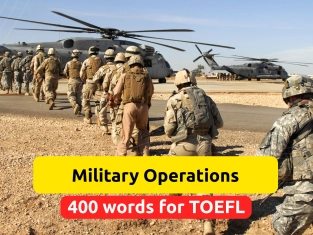by PushtoLearn
Ancient Life
Table of Contents
Ancient Life Flashcards - Vocabulary Practice for TOEFL
These exercises focus on Ancient Life Vocabulary
List of Ancient Life Words for the TOEFL
|
Word |
Definition |
Example |
|
Accuracy |
The quality of being correct or precise. |
The archaeologist measured the site with great accuracy. |
|
Adjacent |
Next to or adjoining something else. |
The ancient ruins were adjacent to the riverbank. |
|
Compress |
To press or squeeze something into a smaller space. |
Layers of sediment compressed over time to form rock. |
|
Feasibly |
Practically or in a way that is possible. |
The researchers argued that ancient cities could feasibly support large populations. |
|
Gut |
To remove the internal parts of something. |
Early humans would gut fish as part of their survival practices. |
|
Integrally |
In a way that is necessary to make something complete. |
The irrigation system was integrally connected to the city’s survival. |
|
Overlap |
To cover part of the same area. |
The territories of the two ancient tribes overlapped in the valley. |
|
Retain |
To keep or hold onto something. |
The fossils retained their original shape over centuries. |
|
Seep |
To flow or pass slowly through small openings. |
Water seeped through the soil, eroding the ancient structures. |
|
Structure |
Something that has been built or organized. |
The structure of the ancient temple revealed advanced engineering. |

Usage in TOEFL Exam Formats
Reading Section
-
Words like accuracy, adjacent, and structure often appear in passages about ancient life or scientific studies.
-
Example Question: What does the author imply about the structure of ancient cities?
Listening Section
-
Terms such as integrally and overlap might be used in lectures discussing archaeology or biology.
-
Example: “The systems of ancient irrigation were integrally linked to agriculture.”
Writing Section
-
Use words like feasibly and retain to show advanced vocabulary in essays.
-
Example Sentence: “Ancient civilizations retained knowledge of their environments through oral traditions.”
Speaking Section
-
Employ descriptive terms like gut, seep, or compress to articulate points during speaking tasks.
-
Example: “Over time, layers of soil compressed, preserving fossils beneath.”
Common Mistakes
-
Confusing "Adjacent" with "Opposite":
-
Mistake: "The two structures were opposite to each other."
-
Correction: "The two structures were adjacent to each other."
-
Misusing "Retain" in a Temporary Context:
-
Mistake: "The city retained water for a short time."
-
Correction: "The city stored water for a short time."
-
Overlooking "Integrally" in Context:
-
Mistake: "The roads were integrally ancient."
-
Correction: "The roads were integrally connected to trade routes."
-
Using "Gut" Metaphorically Incorrectly:
-
Mistake: "The book was gutted of its ideas."
-
Correction: "The fish was gutted for cooking."
-
Confusing "Compress" with "Compact":
-
Mistake: "The layers compacted the fossils."
-
Correction: "The layers compressed the fossils."
FAQ
What does "retain" mean in TOEFL reading passages?
"Retain" means to keep or hold onto something. For example, fossils can retain their original shapes over time.
How is "integrally" used in TOEFL essays?
"Integrally" describes something necessary for completeness. For example, “The climate integrally influenced the survival of ancient civilizations.”
What is the difference between "adjacent" and "nearby"?
"Adjacent" means directly next to, while "nearby" refers to something in the vicinity but not necessarily touching.
How can I remember "compress" for the TOEFL?
Think of "compress" as squeezing something into a smaller space, like layers of soil compressing to form fossils.
Why is "accuracy" important in TOEFL answers?
"Accuracy" ensures your response is correct and precise, a crucial factor in TOEFL scoring criteria.

